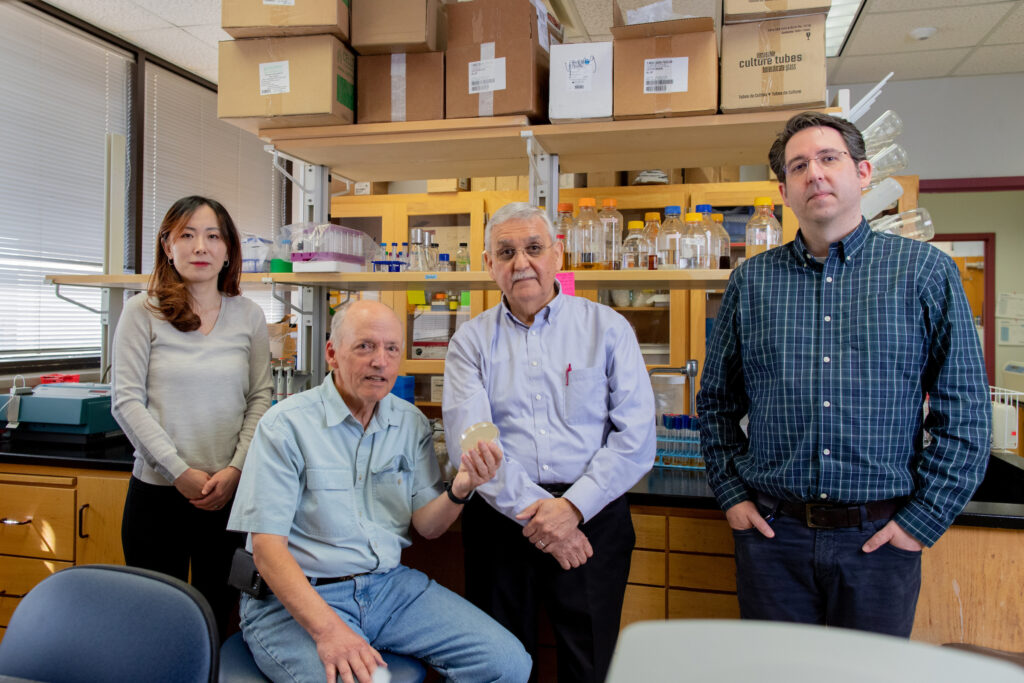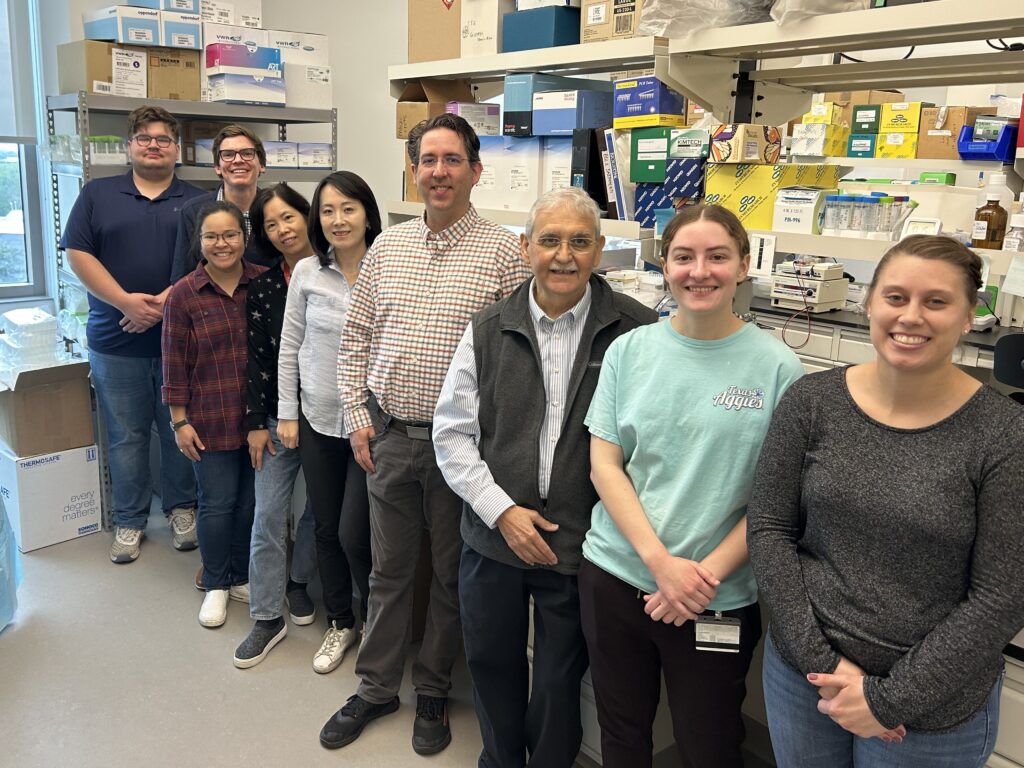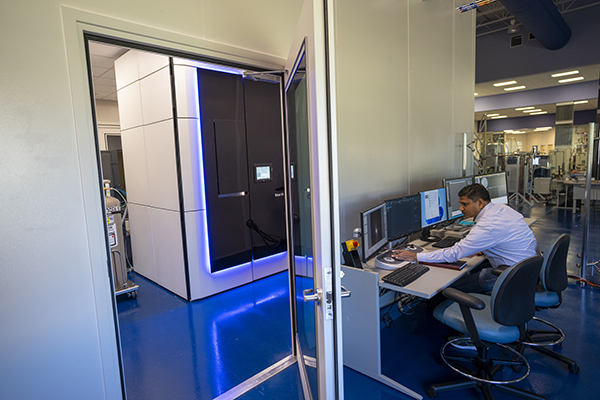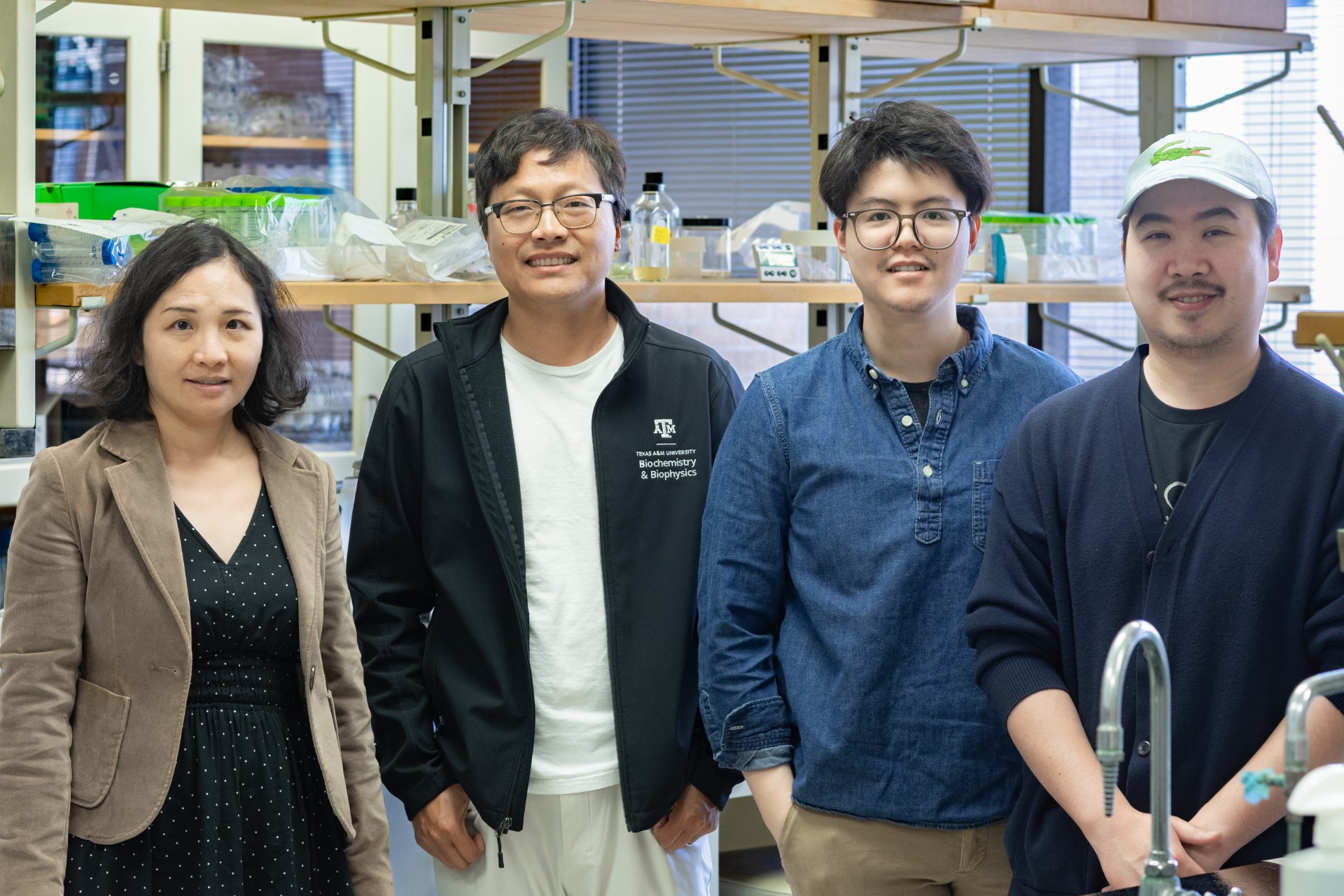Love, Tito’s gift boosts phage therapy research at Texas A&M
Donation supports the Center for Phage Technology’s efforts to address the antibiotic-resistance crisis
Love, Tito’s — the philanthropic heart of Tito’s Handmade Vodka — recently awarded a gift to the Center for Phage Technology at Texas A&M. Committed through the Texas A&M Foundation, the gift will increase the center’s capacity to develop new tools for treating antibiotic-resistant bacterial infections.

At the center, scientists within Texas A&M AgriLife Research work with bacteriophages, or phages, which are viruses that infect bacteria but not humans or other animals. And they’ve proven their lifesaving potential in the medical field.
“The work taking place at the Center for Phage Technology underscores our commitment to leading research and innovation to overcome agricultural and medical challenges,” said G. Cliff Lamb, Ph.D., director of AgriLife Research. “With the generosity from Love, Tito’s, our researchers are better equipped to develop solutions to some of the world’s most pressing concerns. The donation signifies a meaningful step toward ensuring a healthier future for us all.”
Mei Liu, Ph.D., program director of the Center for Phage Technology and researcher in the Department of Biochemistry and Biophysics, said the donation from Love, Tito’s will help advance methods for isolating, engineering and producing therapeutic phages to ultimately address the global threat of antimicrobial resistance.
“We’re very grateful for this award from Love, Tito’s,” Liu said. “Phage therapy is the applied part of our center’s research, and there are still a lot of unknowns we want to address. We’re excited to see what we can learn while continuing to help people.”
The need for phage therapy
History has shown how deadly bacterial infections can be. The development of antibiotics made many bacterial infections treatable, and yet the use of antimicrobials has led to an increase in antimicrobial-resistant bacterial strains. According to the Centers for Disease Control and Prevention, more than 2.8 million antimicrobial-resistant infections occur in the U.S. each year.
To address this growing public health threat, scientists are continually seeking effective strategies to manage bacterial pathogens. One approach that researchers are taking at Texas A&M is to use phages as an alternative to antibiotics.
Biologists at the Center for Phage Technology have worked for decades to develop a library of phages that target specific bacterial strains. In collaboration with hospitals and other research entities, the center also catalogs bacterial samples from patients and monitors the effectiveness of phages against the bacteria over time.
While phage therapy is still highly experimental, it has already shown its lifesaving potential. For example, in 2016, the center was contacted by the physicians in the University of California San Diego Health system for help in finding a phage treatment for a patient dying from a multidrug-resistant infection. The hospital had received authorization from the U.S. Food and Drug Administration to attempt phage therapy.
Following weeks of nearly nonstop work at Texas A&M and other phage labs, researchers at the center sent a purified phage preparation to the physicians at the UC San Diego hospital. Shortly after beginning the phage therapy, the patient awoke from a months-long coma and eventually returned to his normal life.
“The case was a huge achievement,” said Jason Gill, Ph.D., associate professor in the Department of Animal Science and co-director of the Center for Phage Technology. “Since then, we’ve continued developing phage libraries and building relationships with patient care communities, which have been really valuable for our work.”
The need for Love, Tito’s support
Despite the significant need for phage therapy’s continued development, clinical interventions like the UC San Diego patient’s case fall into a gray area outside both basic research and commercial development, making donations from philanthropic organizations like Love, Tito’s vital.

“One of our main philanthropic aims for Love, Tito’s is to find scientists who are at the top of their respective fields and fund their future-thinking research that is unlikely to be supported, for a variety of reasons, by either traditional funding institutions or the private sector,” said Sarah Everett, Ph.D., director of global impact and research at Tito’s Handmade Vodka. “Phage therapy fits perfectly within that scope because it is tackling a growing, worldwide problem that remains largely unaddressed because the current financial incentives to solve the problem are insufficient.”
With the help of this gift, researchers at the center aim to improve their methods to study — and even engineer — phages to transform them into more targeted and effective therapeutics. Additionally, the funding will support their capacity for clinical interventions.
Currently, the team’s primary focus is on bacterial infections affecting patients with cystic fibrosis, an inherited disease that damages the lungs and digestive system, as well as the body’s ability to fight pulmonary pathogens.
“A lot of the bacteria that infect people with cystic fibrosis aren’t common enough that companies develop phages for them,” Gill said. “It’s become an orphan disease that we’re trying to help with now.”
Liu said even when the center isn’t involved in clinical interventions with patients, there are still plenty of fundamental questions to answer.
“The exciting part for us is we always have something new to learn,” she said.
The science-minded team at Love, Tito’s also expressed excitement at the collaboration. The center at Texas A&M is just one of the most recent recipients of the generosity of Love, Tito’s, which has donated to a range of research-based initiatives with the potential for a positive global impact.
“We feel very fortunate to be able to support promising research, like the work at the Center for Phage Technology, that aims to solve some of the world’s most urgent problems,” Everett said.





